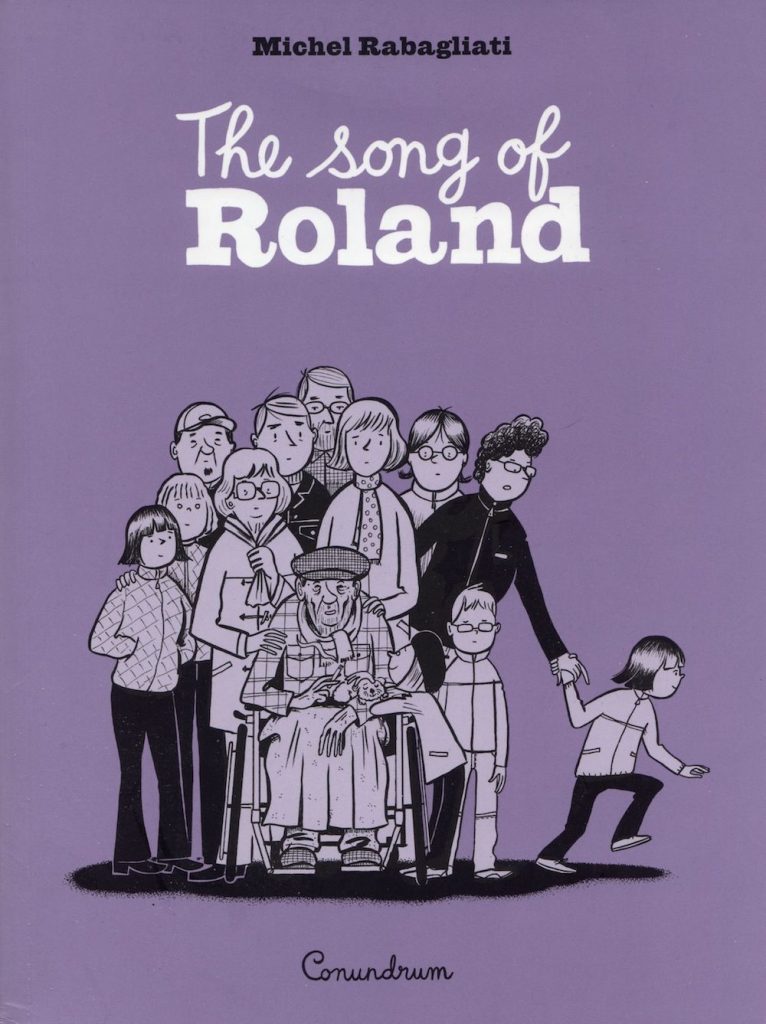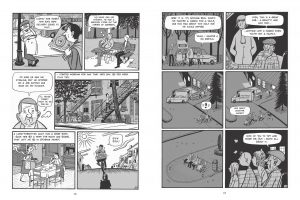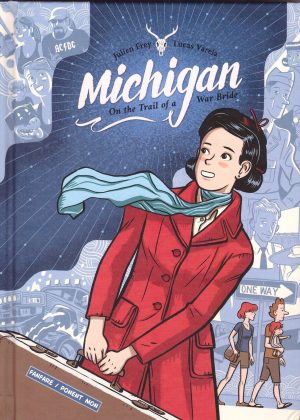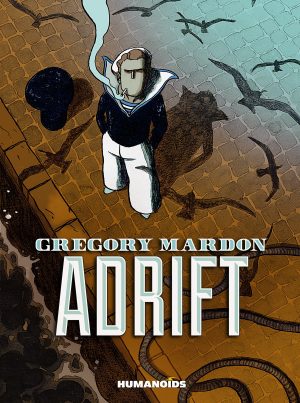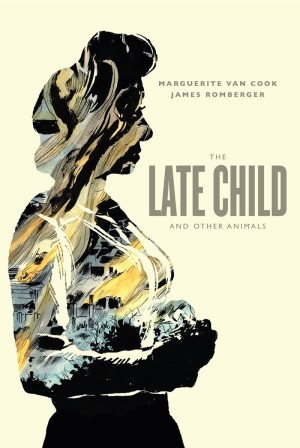Review by Frank Plowright
In English at least, The Song of Roland is a puzzling anomaly in Michel Rabagliati’s catalogue of autobiographical reminiscences, as it’s the only graphic novel not to include his Paul alias in the title. That’s because the English title restores Rabagliati’s original intention for a work largely dealing with his father-in-law, named Roland, while his original French publishers preferred the continuity of naming Paul in the title, which translates as Paul in Quebec. It could also be pointed out that he’s always in Quebec province anyway.
Rabagliati begins with Paul, his wife Lucie, and their pre-teen daughter Rose visiting Lucie’s parents Roland and Lisette, who’re also hosting their other children, partners and grandchildren, so a lot of people are staying in the house, which means some tolerance is required. What Paul notices about Roland will instantly ring alarm bells for readers who recognise the signs themselves, and although he’s not always centre stage, Roland dominates the narrative. The astonishing story of his younger life is one of tragedy and deprivation at a level difficult for anyone from a Western society to understand nowadays. In the USA it would have been the making of a country singer. Roland in the present day becomes terminally ill, and for a strong man used to doing everything for himself the sudden loss of capability results in a lack of understanding and lashing out.
Inevitably, there is no happy ending to Roland’s story, but one of many things to admire about Rabagliati’s polished cartooning is how the cheerful style is equally equipped to address darker incidents. As ever, there’s considerable life and detail. It’s almost a statement that Rabagliati adheres religiously to a two-dimensional style with grey tones, but no depth shading, yet there’s no lack of movement, and the visual storytelling is frankly sumptuous. What needs to be conveyed on the right hand sample page is complex and subtle, yet Rabagliati’s visual astuteness devolves it to simplicity. He’s also capable of tangling a sequence, as seen by the nightmare Lucie experiences as her father is dying.
There’s no dignity in death involving cancer, and Roland’s lingering decline is fully documented, the chapter breaks decreasing from months to days, but this is no misery memoir. Roland’s achievements are there to be admired, and scenes between the final stages offer some light relief. Lucie and her sisters having a quiet smoke is touching, funny and natural, and Rose determined to wear a hat charms. While Roland isn’t Rabagliati’s blood relative, there’s a thematic similarity to Raymond Briggs’ loving memoir of his parents, Ethel and Ernest. People whose lives would otherwise not be remembered after two generations are stunningly commemorated, preserving those lives.
There’s no such thing as a poor Rabagliati graphic novel, yet The Song of Roland presents a strong case for being his best work. Tragic circumstances are sensitively conveyed along with a process many readers may not have experienced in any respect, the drawing is peerless, and the moments of light so joyfully handled, while the day to day frustrations resonate.
To anyone picking out a chronological continuity to Rabagliati’s graphic novels, the present day events slot between Paul Goes Fishing and the later Paul at Home.
